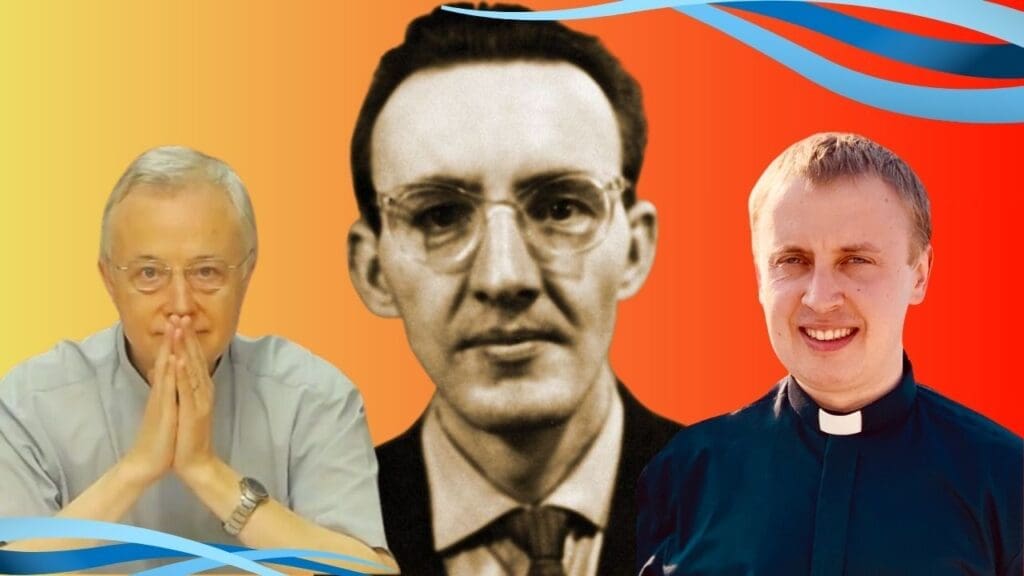Interview of the Postulator General, Fr. Serhiy Pavlish, CM, with the Superior General, Fr. Tomaž Mavrič, CM, on the imminent beatification of the Vincentian seminarian Ján Havlík!

Dear Fr. Tomaž, how do you view the beatification of the Slovak seminarian Ján Havlík?
First of all, it is a moment of great grace for the Church in Slovakia, but also for our entire Vincentian Family Movement present around the world. On one hand, the beatification rite is the official recognition of the martyrdom of Jánko Havlík, for which we are grateful to the Holy Father, Pope Francis. But for our Vincentian Family Movement, it is also an opportunity to once again witness the vitality and activity of our charism. Blessed Janko shows us, through his example, how he managed to embody Vincentian spirituality and charism in his life during a specific and difficult historical period. From his life’s example, we see that merciful love for others is inventive and eloquent, encouraging us to think and imitate (follow). The testimony of Blessed Janko’s life shows that it is worthwhile to be courageous in showing mercy to others, because in the end, the rewarder will be our Heavenly Father. Therefore, I see the solemnity of the beatification of a member of the Vincentian Family Movement as a heavenly invitation to renew the spirit of mercy towards those in need, as well as encouragement to always be ready to “incarnate” it in our vocation.
He wanted to become a priest, a missionary, but he could not and died due to cruel torture. How can his story inspire us today?
The Venerable Jan Havlik was persecuted for his faithfulness to the Roman Church, for his aspiration to the priesthood, and for his religiosity. He was condemned for persevering in his desire to become a priest, refusing to continue his studies at the academic institutions organized by the atheist state.
He did not engage in direct activities against the communist regime; however, he refused to abandon the values of faith and Christian doctrine. His condemnation is an expression of evident hatred towards faith, but Janko desired to live and express his vocation to the priesthood according to the charitable and missionary charism of the Congregation of the Mission of St. Vincent de Paul, following Christ in the most authentic way possible.
The figure and life of this Servant of God, I would say, is a luminous testimony for many young people, not only in matters of faith but also in the total offering of one’s life up to martyrdom, refusing to yield to ideologies contrary to the Gospel and the Church. Moreover, it is a testimony of apostolic zeal even in extremely difficult and dangerous conditions.
Every martyr is a witness; the strong and significant testimony of faith given by the Servant of God, I believe, can be very meaningful for the Church and the world in view of the ever-present need for effective proclamation of the Gospel and for a fruitful and widespread evangelization and life testimony, which makes every Christian, according to the specificity and uniqueness of their own “personal vocation,” a witness.
In what ways does he inspire you on the journey towards the Jubilee?
It is both surprising and inspiring to see the tenacity with which he managed to proclaim the Gospel to other prisoners and instill hope in them. He accepted every injustice and mistreatment, and every suffering and illness with a spirit of patience, united with the sufferings of Christ.
In prison, the Servant of God lived the grace of the moment. His time was dedicated to the mission. He felt co-responsible for all the people he lived with and believed that we should all take more interest in them and bear witness to our faith. He would remind his fellow imprisoned brothers to show now what was within them, what they truly thought of their missionary vocation, which he had dreamed of since he was young. In prison, they called him “the priest” because he professed his Christian values and did not hide his vocation. Even after his release, Janko continued to bear witness to his faith, always considering the place where he was as a mission territory.
In prison, Janko had a missionary attitude. He collaborated with imprisoned priests and organized secret Masses after which he would bring Communion to the prisoners. He openly professed his faith in front of the guards. The spirituality of the Servant of God reveals the sacrificial, priestly element. He was always conscious of belonging to the Congregation of the Mission, and for this reason, he was willing to suffer and even sacrifice his young life. He wanted to take on the punishments assigned to others. He was aware that he did not have much time left to live, and so he offered his entire life as a sacrifice to God.
Will you attend the beatification ceremony in Šaštín, and what is your schedule in Slovakia?
I come to Slovakia with great joy, having the opportunity to participate in all the events scheduled in the program, which will culminate with the Rite of Beatification of the Venerable Servant of God JÁN HAVLIK on August 31, 2024, in Šaštin, at the Basilica of the Seven Sorrows of the Virgin Mary, at 10:00 am, presided over by the Representative of the Holy Father, Cardinal Marcello Semeraro, Prefect of the Dicastery for the Causes of Saints.
But my heart is also full of great gratitude to God for the opportunity to share this joy with the members of the Vincentian Family Movement present in Slovakia and with all the faithful who will participate in the celebrations.
Fr. Serhiy Pavlish, C.M. – Postulator General
for the Communication Team for the Beatification Celebration
for the Communication Team for the Beatification Celebration


Thank you for sharing this eternal-living icon of Jesus Christ in the Vincentian spirit.